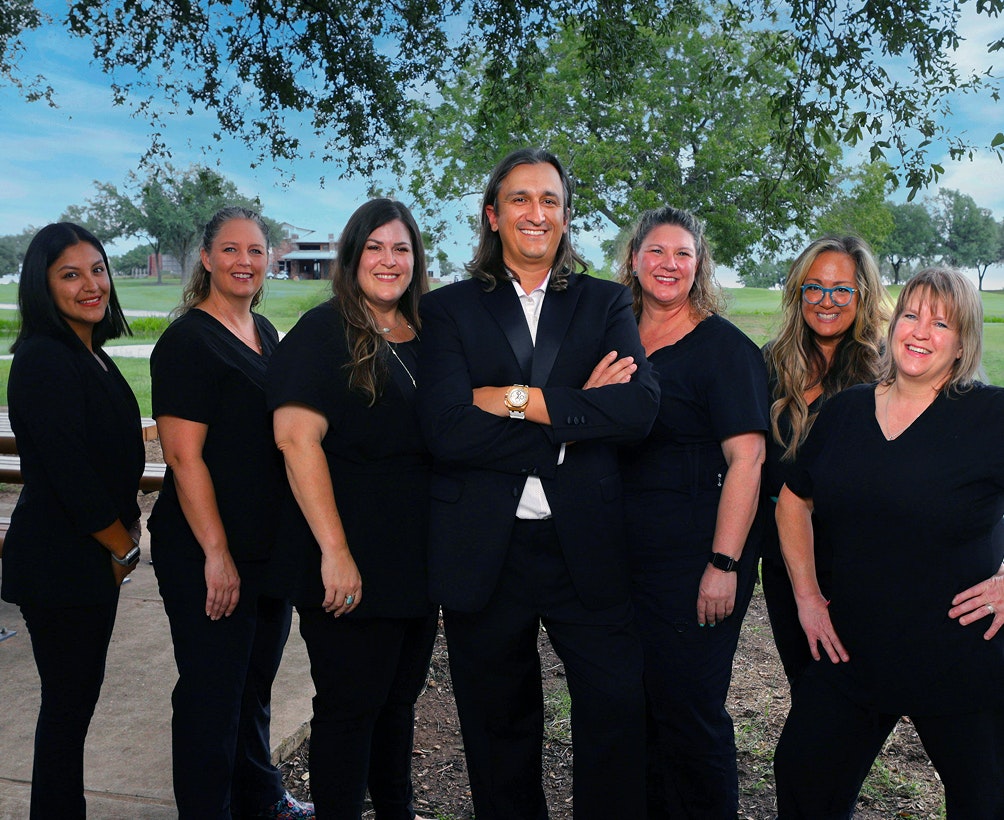Sensitive Teeth or Toothache?

There is nothing quite like the pain that can come from pain in your teeth. Whether
you’ve been woken up by the sharp lightning pain in a tooth or you’re struggling to eat cold
foods, there’s no getting away from just how miserable it can make you feel. But just what is
causing this pain? Do you have sensitive teeth? Or does it go beyond that with a toothache
that’s caused by a cavity or crack in a tooth? Do you know what the source of sensitive teeth
actually is?
It's tempting to try and self-diagnose that pain in your teeth, but it’s also important that any
damage to your teeth is treated as soon as possible, so it doesn’t worsen and lead to a much
worse situation. Let’s take a look at what could be responsible for that pain.
What does it mean to have sensitive teeth?

Does just the idea of biting into the cold of an ice cream cone send shivers up your
spine for the wrong chilly reasons? Sensitive teeth aren’t just a specific type of tooth that some
people are born with. If your teeth are sensitive, there are good odds that you’re facing a
dental wellness concern, referred to as dentin hypersensitivity, that your dentist needs to take
a look at.
Here are some of the most common reasons that tooth sensitivity happens.
-
Worn enamel that exposes the inner layer (dentin) of the tooth
-
Exposed roots
-
Gum disease
-
Cavities
-
Cracks or chips in a tooth
If you have sensitivity in your teeth, you may find that even brushing your teeth can cause
sharp pain. Eating, drinking, and even talking or laughing in cold environments can result in that
sharp pain that stops you in your tracks.
The role of gum disease in tooth sensitivity
Have you been diagnosed with gum disease? If you have not yet been diagnosed, it
could be that your tooth sensitivity is the result of periodontal (gum) disease. This serious and
painful condition is an infection in the gum tissues surrounding your teeth. In its early stages,
gingivitis, it’s quite easy for your dentist and dental hygienist to treat. As it advances, treatment
can become much more complicated. Your sensitivity could also be accompanied by bleeding
when you brush or floss. You may also be at risk of losing your teeth when the gums
surrounding them loosen and retract.
Treatment options will be based on the severity of your condition. Routine dental cleanings can
often help in the early stages of gum disease. For situations that have advanced, you may need
a gum graft.
You may be at a higher risk of gum disease due to genetics, but there are several things that
you can do to help keep your teeth and gums healthy. This includes the following.
- If you smoke, quit smoking
- Brush your teeth with fluoride toothpaste at least twice a day. Ideally, brush your teeth after every meal.
- Floss, at least at the end of the day. Ideally, floss after every meal.
- Keep up with your routine dental checkups and professional cleanings.
Gum disease can be prevented, controlled, and treated. But it’s important that you don’t delay
getting that treatment. Not just because you’ll continue to feel discomfort and pain but
because getting treatment sooner means getting relief sooner and helps to prevent more
serious concerns from becoming a reality.
Cavities, cracks, chips, and more
 While some damage to your teeth can go and grow unnoticed for some time, it will
While some damage to your teeth can go and grow unnoticed for some time, it will
eventually reach a point where you definitely will notice it. Teeth visible when you smile may
show signs of damage, or they may become discolored. You may also be able to feel the
damage when you run your tongue over the tooth. More often than not, teeth with cavities and
advanced damage will start to be the source of discomfort and pain. You could find that you’re
sensitive to extremes of hot and cold when you eat or drink. You could also find that simply
biting down on an apple causes pain.
The best way to resolve any type of sensitivity or pain in your teeth is to have your dentist take
a look at the troublesome areas. From here, a treatment plan can be made. Perhaps you need a
professional cleaning or a filling. Perhaps you need more extensive work. No matter the issues
with your teeth and gums, they will only get better once your dentist can work on them.
Easing the discomfort and pain, temporarily
If it’s after hours or you can’t get to your dentist quickly, there are a few things that you
can do to temporarily ease some of the discomfort that you’re feeling.
- Over-the-counter pain relievers. Be sure to speak with your physician if you’re on medications that may interact with over-the-counter pain relievers.
- Avoid crunchy or chewy foods that may aggravate your sensitive teeth and gums. This should also include candy and other sugar-filled treats.
- Be sure to brush, floss, and use mouthwash. You may find it more comfortable to use warm water when rinsing your mouth out.
- Use a warm compress against your cheek to try and relieve some of the pain. Alternate with a cold compress if you have swelling.
- Rinse your mouth with saltwater. Be sure not to swallow it. Just rinse and spit. This can help to keep your mouth clean and can sometimes help to ease the pain.
- Topical numbing gels, typically over-the-counter, can sometimes help to ease some of the discomforts that you’re feeling. They may not work well for everyone, but it is worth trying if you cannot get to your dentist quickly.
In many cases, you won’t be able to get long-lasting relief from the sensitivity or pain until your
dentist is able to identify and help remedy the source of the sensitivity or pain. When you are
struggling with sensitive teeth or a toothache, Dr. Ace's primary goal will be to get you out
of pain first. You may need to be on a course of antibiotics before your treatment can begin. Be
sure to speak with your dentist about the options that you have so that you can get out of pain
and hopefully prevent it from happening again in the future. Contact us today to schedule your appointment!



